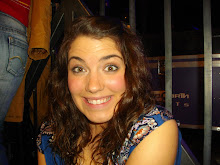Thursday, April 15, 2010
One Flew Over the Cuckoo's Nest: Themes of Laughter and Humor in Movies
After watching Goodfellas it got me thinking about other Scorsese movies, the most recent of which I saw is Shutter Island. And thinking about Shutter Island got me thinking about one of my favorite books/movies One Flew Over the Cuckoo's Nest. At first I thought Shutter Island was going to be kind of a modernized OFOTCN in which a mental institution is shown as corrupt and the patients within it are victimized. But then obviously after the twist in Shutter Island, I realized it wasn't that at all, but leading up to the twist definitely reminded me of OFOTCN. I think that would be a great movie to add to the list of films we watch. I wrote a very in depth analysis of the book in highschool and discovered a ton of universal themes. The theme I focused on the most was the power of laughter. How just the addition of a bit of humor in the patients lives, brought to them by McMurphy, can completely change not just their attitudes, but also their actions. There's also part of the book that is so powerful I still remember it, when one of the characters is talking about why he felt he needed to come to the mental institution, and it was because he couldn't take people laughing at him over his disability. These two examples show that laughter can be very powerful in so many ways, it can either make or break up. And in turn thinking about this made me think back to Sullivan's Travels, which was my favorite movie we watch in class for the very reason that it emphasized that theme of humor and laughter. Like I said in my earlier blog, my favorite line from that movie is right at the end when Sully says "There's something to be said about making someone laugh." I think that this is so true, so I was really excited when I drew the connection between the two movies. It's definitely the reason I like both of those movies so much, becuase I really believe that humor is one of the most powerful things in life, and I appreciate when that is acknowledged in books and movies.
Wednesday, April 7, 2010
Goodfellas
I actually really liked this movie. I was apprehensive to watch it because I'm pretty squeamish when it comes to graphic violence, but it was actually much less violent than I thought it was going to be. I mean obviously it was violent in parts, but it wasn't just non-stop violence the entire time. There are so many other facets to the movie besides pure violence, and I think that's what makes it so good. When you watch a gangster movie, you expect to be inundated with violence, but in Goodfellas, Scorsese does an excellent job of mixing the violence with so many other sides of the gangster lifestyle that are usually ignored. Scorsese does this in other films as well. He makes films that appear as thought they will be extremely violent throughout, but then turn out to be so much more than just violence. Take for example The Departed, it is not terribly violent the whole time, but there is just a couple very shockingly violent scenes like the boot hand smashing scene. Or Shutter Island, almost devoid of violence until the end where the kids are killed by their own mother. I like that instead of making his movies constantly violent, he puts in just a couple shockingly violent scenes to get the point across. That way, the movies are more memorable and you're able to connect with other parts of the movies besides just the violence. I also really like that Henry's character is narrating in a voice-over a lot of the time. It gets you up in his head instead of just being an outside observer. It also shows his thought process the whole time as he goes through the classic gangster plot: working his way up and being on his highest high, feeling invincible, until everything falls apart and he gets frantic and desperate. You see this in almost every gangster film, but this has a twist to the ending that I like. Usually, he would die in the end, but he chooses the less heroic path of going into the witness protection program. I love the the scene at the end where he comes out of his cookie cutter house in a bath robe. It is ironic that his whole life all he wanted was to be a gangster, and he became one, but instead of that getting him where he wanted, in the end it got him to a life of boring normalcy, which is the last thing he wanted and the last thing you would expect. It also connects to a past subject we talked about which is suburban discontent. He never wanted that life, but was forced to choose that or death. Overall it was a great movie and makes me want to see more Scorsese films.
Subscribe to:
Comments (Atom)
